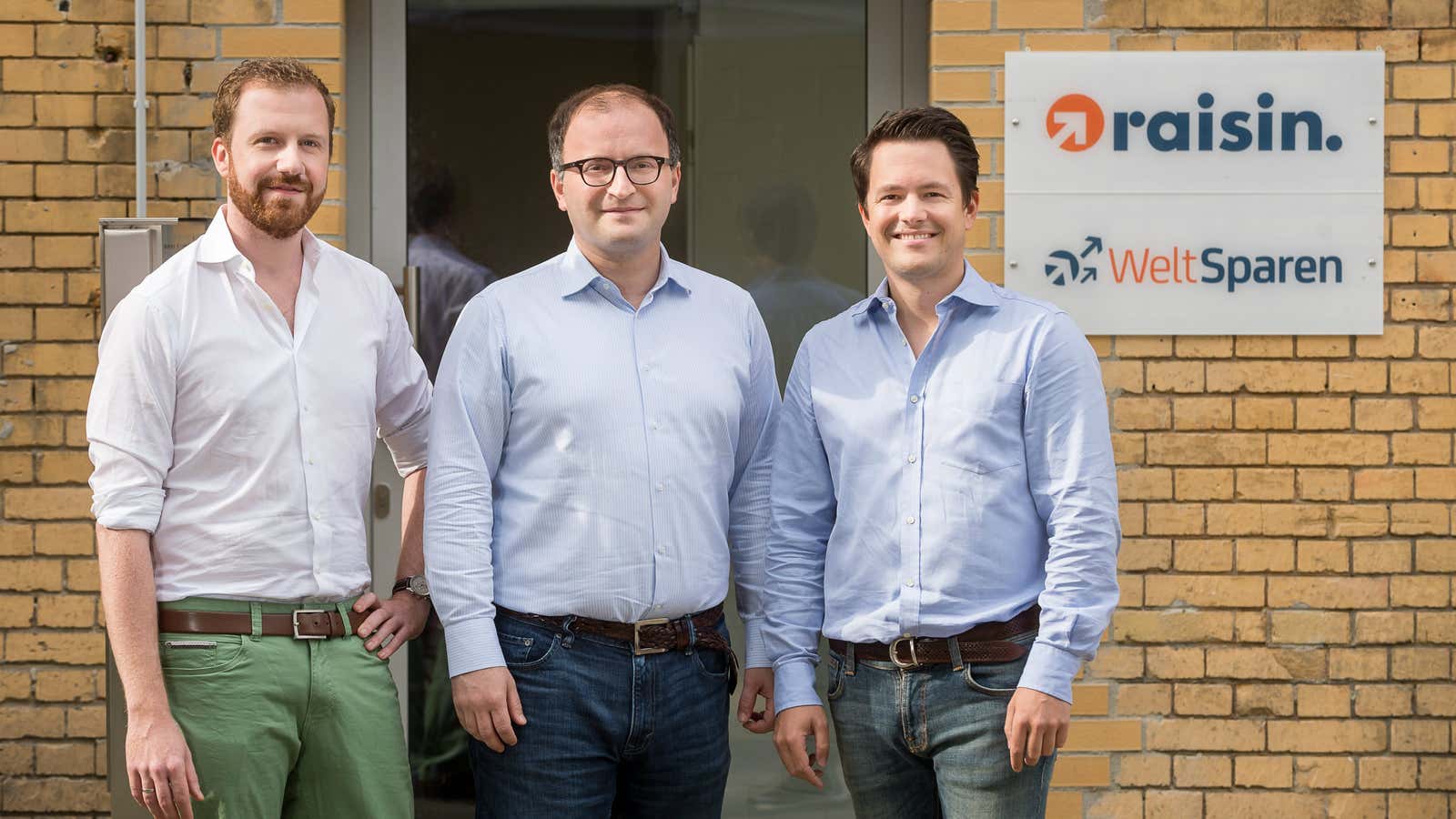A German fintech started a service in 2013 that helps Europeans shuffle their money around the continent to the highest-yielding savings account. Now, the company plans to bring its technology to the US within the next six to 12 months, which could provide a boost to community banks by connecting them to a bigger pool of savers around the country.
A few years back, a key market for Raisin was the German saver stuck with a 1% or lower interest rate on savings, but who could grab a better return in Portugal, or even more outside the eurozone in Bulgaria (3% or more). Its service highlighted a lack of integration in Europe’s banking market, which was still mainly run along national lines. Raisin now has 175,000 customers across Europe and more than 75 bank partners.
US savers can chase the highest-yielding online savings account from state to state, but they often don’t—either because they don’t realize better options are available, or it seems like too much trouble to open new accounts. The Federal Reserve’s benchmark overnight rate is now 2.25% to 2.50%, but the rate traditional banks pay on savings deposits can still be chintzy. Commercial banks hold some $8 trillion of cash, paying an average of just 0.10%, according to Bankrate. Moving their money around could help savers obtain interest rates of 2% or more.
Even though US interest rates have been rising for several years, many Americans may not realize they’re foregoing a better deal by moving to a better savings account, says Raisin COO Michael Stephan. A good number of Americans also have money sitting in checking accounts that don’t pay any interest at all.
Other fintechs are also targeting US savers. In February, California-based robo-advisor Wealthfront announced a “Cash Account” with an interest rate of about 2.3%. Betterment, another US financial startup, offers a Smart Saver product that can be used to invest in a low-risk bond portfolio (which is not a federally-insured savings account).
If it catches on, Raisin’s deposit brokerage service could help perk up deposits for smaller US lenders. By joining the platform, community banks could reach retail depositors across the country, helping them compete with the nation’s mega banks, which can afford to spend heavily on technology and advertising, and have a large branch footprint.
Stephan says the Berlin-based fintech has spoken with potential bank partners during the past six months but isn’t ready to announce which ones it will work with. The company has hired Paul Knodel, who previously worked with Citigroup and Wealthfront, as its US CEO. The company said in February that it had raised $114 million from investors including PayPal, as part of its plans to expand internationally.
“It’s a good thing for the market to have a more efficient distribution of deposits,” Stephan said. “If an industry becomes more digital, then switching costs go down, transaction costs go down, and it becomes more efficient.”
